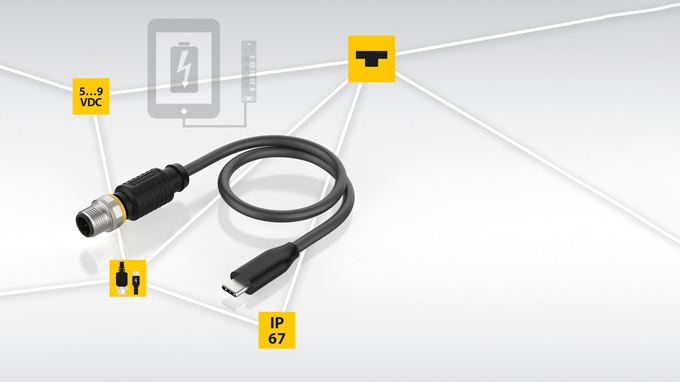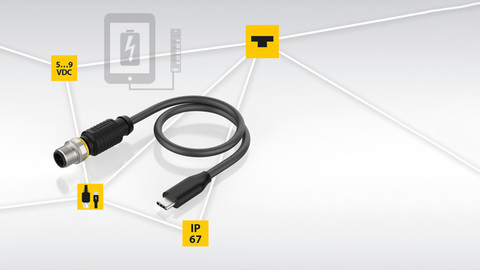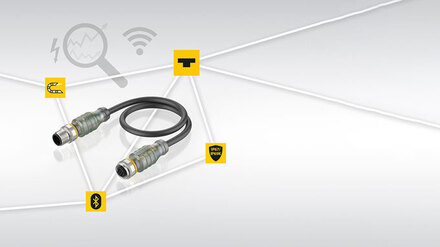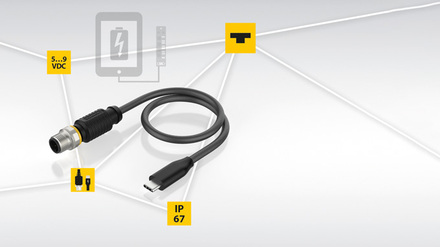

Charge mobile devices directly at the M12 socket: TURCK's M12 USB charging cable makes it possible
Industrial Charging Cable M12 to USB
TURCK simplifies the operation and charging of mobile devices in industrial plants with robust 24VDC M12 USB charging cable
TURCK presents a robust, industrial-grade charging cable that converts 24 VDC internally and delivers up to 3 A at 5 V or 1.66 A at 9 V. The cable is equipped with a robust M12 connector with IP67 protection and enables reliable power supply to tablets, laptops, and other mobile devices in harsh production environments – without additional 230V Schuko sockets and AC infrastructure. This saves companies AC power supplies and adapters and allows them to easily integrate mobile IT devices into existing OT environments.
Your Benefits
- No 230 VAC infrastructure required
- Easy integration into existing systems
- Reduced costs for adapters and chargers
- High operational reliability in harsh environments
Supply and charge mobile devices directly in the field
The industrial charging solution not only reduces installation costs, but also increases flexibility in production and logistics facilities. Users can utilize existing 24 V supply points to charge or operate mobile devices directly in the field. The cable can be extended with standard sensor cables without any loss of voltage. The M12 connector according to IEC 61076-2-101 ensures safe and error-free operation. The standard version with M12- connector and USB-C connector is available from stock, while special versions for M12 to USB-A or USB-C socket can be manufactured to order at short notice.
INDUSTRIES
- Automotive
- Machinery and plant engineering
- Intralogistics
KEY FUNCTIONS
- Direct DC conversion: 24 VDC to 5…9 VDC, up to 3 A
- Physical connection between the OT and IT worlds
- Reverse polarity protection for safe operation
- Industrial-grade M12 connectors with IP67 protection
- Compact design without external power supplies
RELATED CONTENT

Product Family: M12Plus Bluetooth Connectors
TURCK's M12Plus connectors monitor the voltage drop in the cable to prevent expensive plant downtimes and unscheduled maintenance work
PRODUCT DATA

All Details about the M12 USB Charging Cable
Approvals, data sheets, technical specifications, instructions, certificates, CAD data, and more


